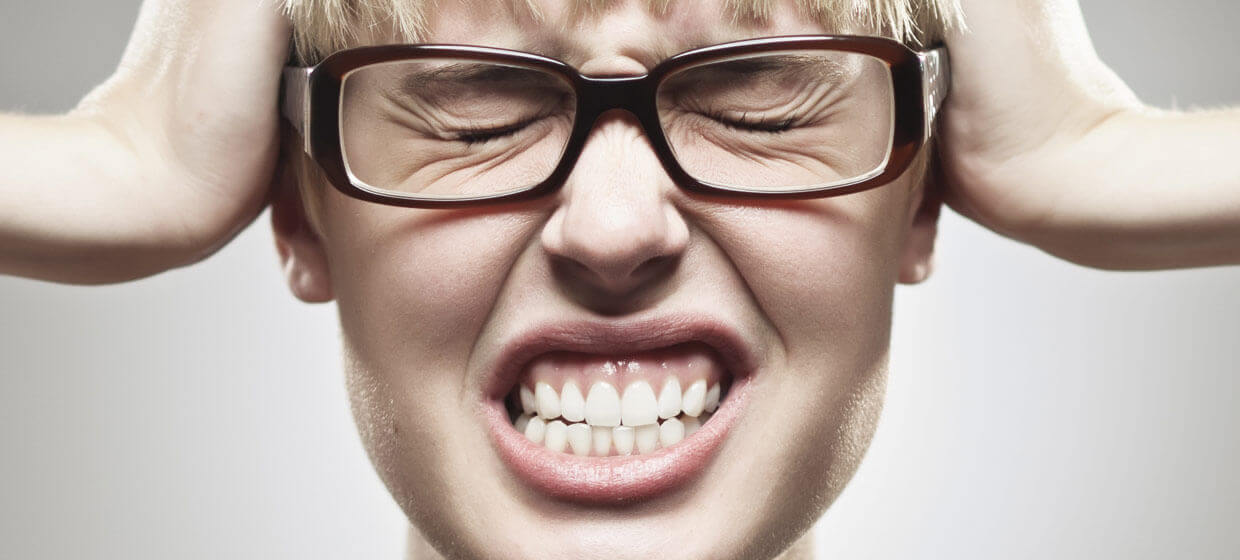
While you may not be familiar with the term "bruxism", you’re likely to be familiar with its associated behaviours.
It is important to understand the consequences of bruxism and how it can impact on your dental health. Bruxism is a broad dental term used to encompass a number of behaviours. Any of these behaviours can be done consciously or unconsciously i.e. (during sleep). This is called sleep bruxism.
These include:
- Gnashing
- Grinding
- Clenching
- Gritting
The effects of teeth grinding
Teeth grinding can range from just a mild annoyance, to a serious problem that requires a dental professional's attention. The big concern for dentists is bruxism's cumulative effect. It's not one day of clenching or gnashing which causes the problem, it's the years of this cumulative behaviour that wears down your teeth, resulting in the need for serious dental treatment.What are the side effects?
- Wearing away of teeth and enamel
- Fracturing of teeth and restorations
- Loosening of teeth from the gums
- Receding gums
- Tooth sensitivity and pain
- Loss of teeth
- Aching jaws
- Recurring headaches and migraines
- Developing joint disorders (Temporomandibular)

What are the causes of Bruxism?
Teeth grinding causes may include high stress; an abnormal bite; crooked teeth; muscular dysfunction; and skeletal problems.Stress is the biggest cause for grinding or bruxism. Grinding on a continuous basis may lead to severe complications. When we grind, the bone surrounding our teeth reduces, and eventually makes the teeth mobile.
Grinding also causes bone loss in a vertical dimension, leading not only to tooth loss, but also loss of facial symmetry. Grinding also has a detrimental effect on the outer layer of the tooth, called the enamel. It may lead to cracks or fractures in the teeth, that may in turn lead to sensitivity or nerve involvement, where the nerve becomes irritated. Commonly grinding’s effects can be seen in the enamel where it becomes worn down and the dentine becomes exposed.
Grinding is not something that can be left untreated as it will become worse. The masseter muscle is responsible for mastication, but when it becomes excessively large, it may play a role in grinding. This condition is termed muscle hypertrophy. Relaxation of the joint however, will have a relaxing effect on the face and rest of the body. In some cases, clenching, grinding and bruxism may play a role in tension headaches or migraines. A neuromuscular involvement may lead to these conditions.
The largest muscle associated with bruxism is the cheek muscle, or masseter. This is the muscle that helps us chew, and is one of the strongest muscles in the entire human body. Dental researchers say the muscle during chewing can exert around 60 kg of force per square centimetre on the molars in the rear of our mouths. It's a strong muscle and can have a big impact on the health of the jaw and mouth.
Bruxism can also agitate the gums causing them to recede, leading to further exposure of the dentine. Therefore, grinding is seen as a co-factor in periodontal disease. While grinding is not seen as the cause for periodontal disease, it does increases the speed of bone loss in periodontal disease.
Other causes leading to bruxism include malocclusion where the teeth do not bite properly as well as sleep disorders or sleep disturbances.
A balanced and healthy lifestyle, regular exercise, and stress relief habits aid in the prevention and management of bruxism.
